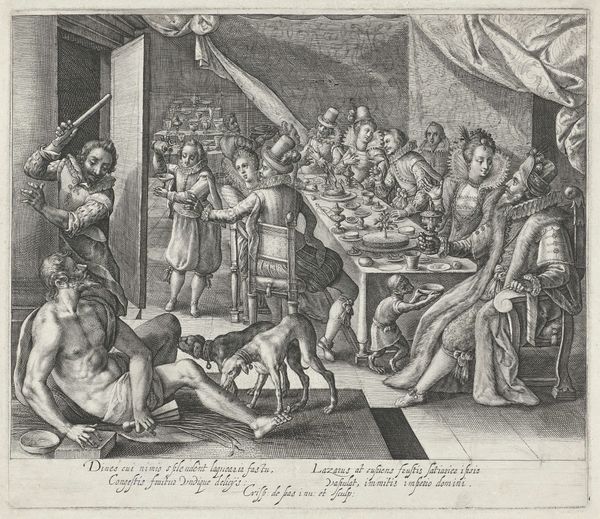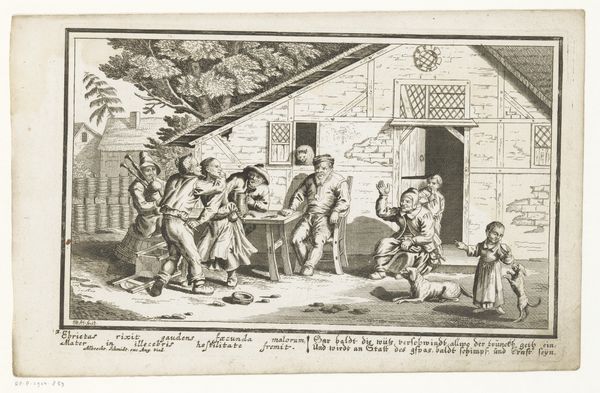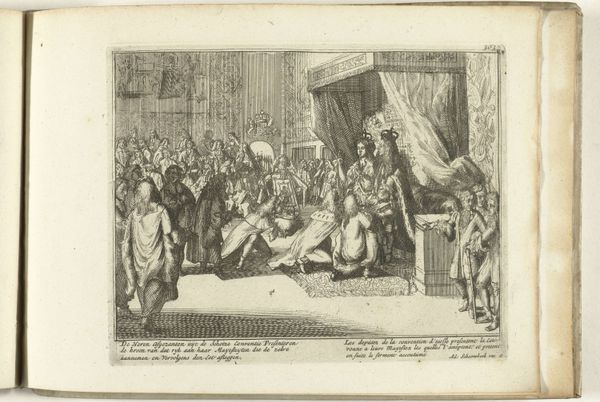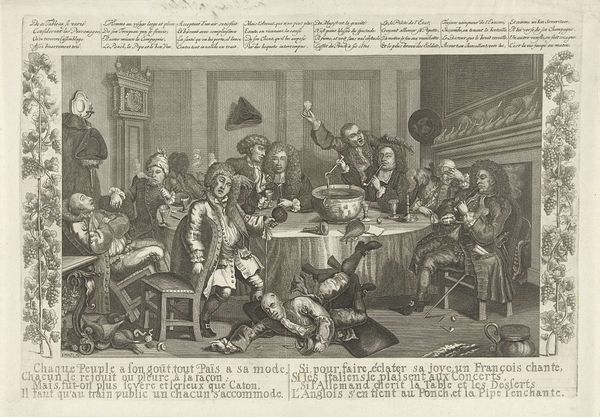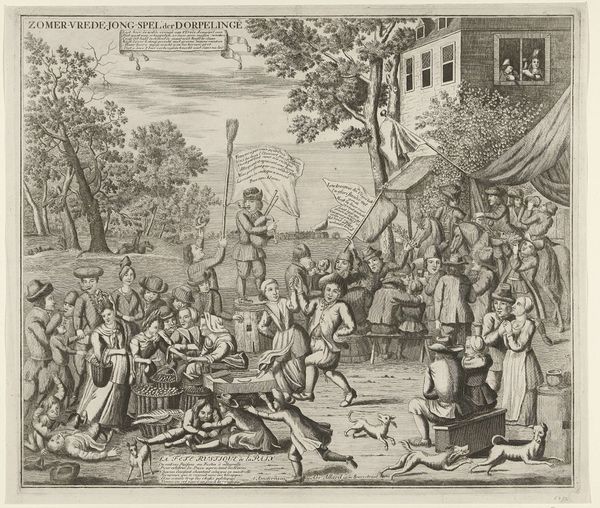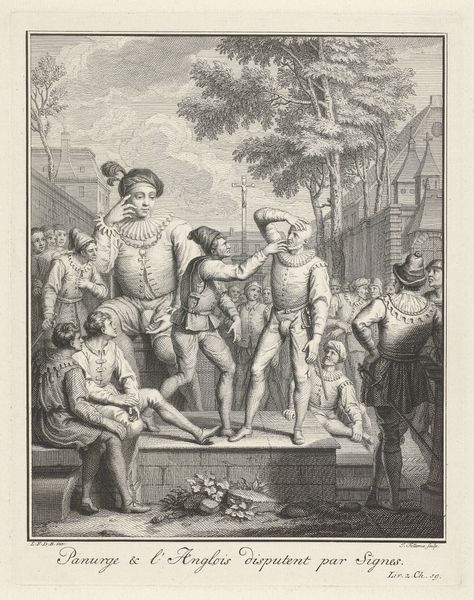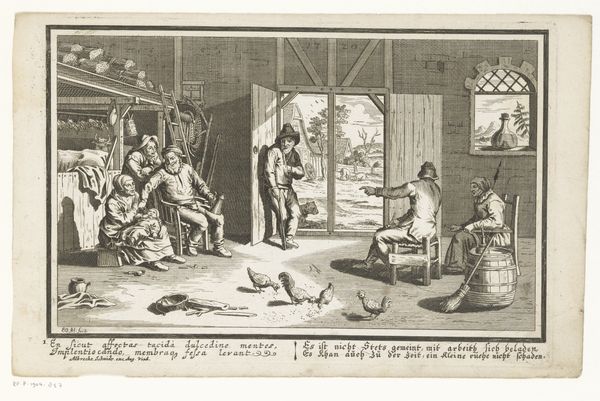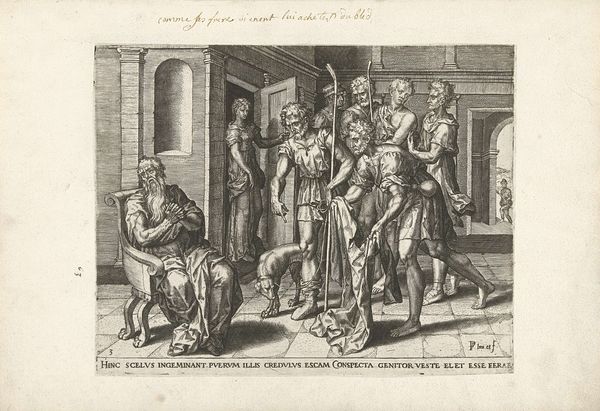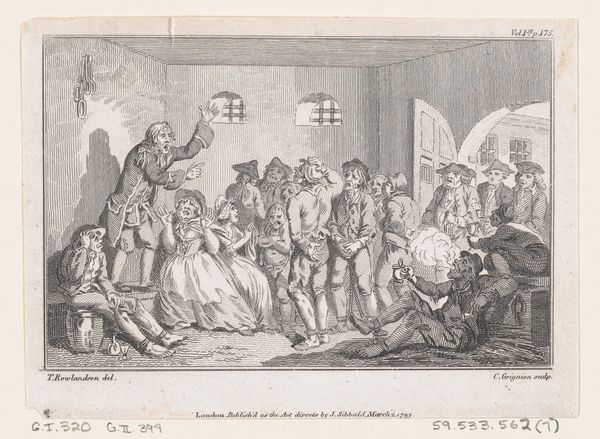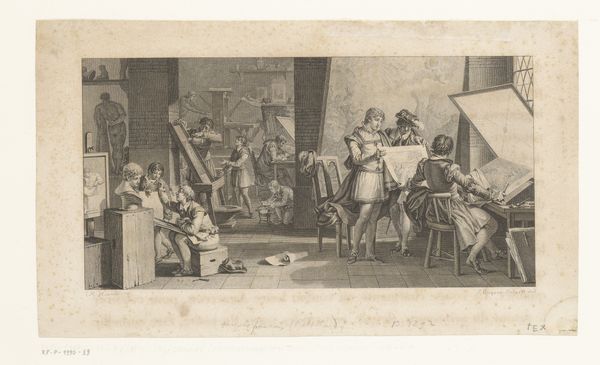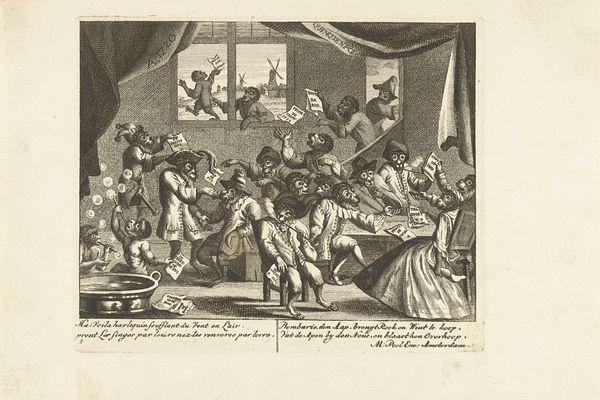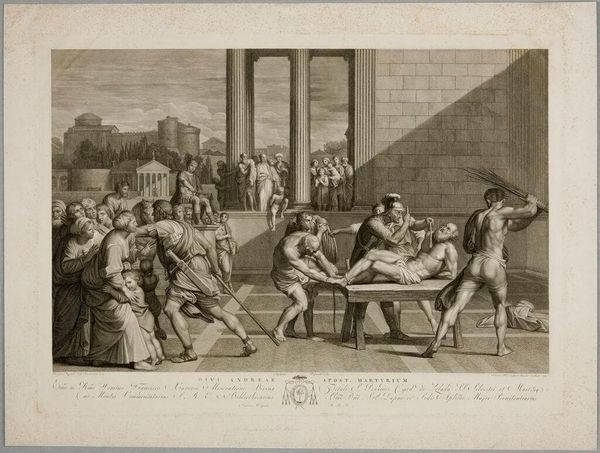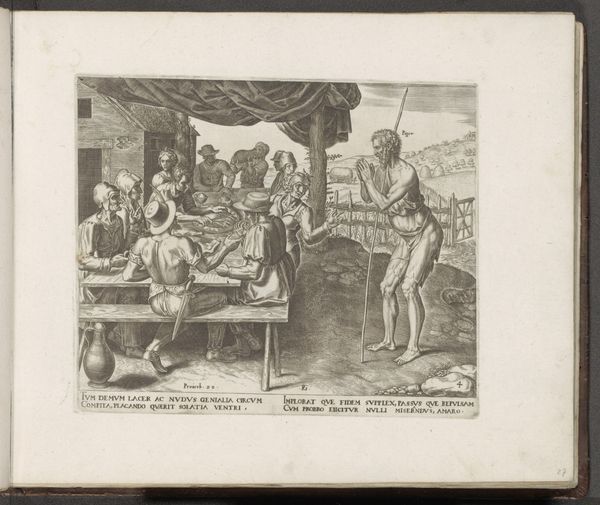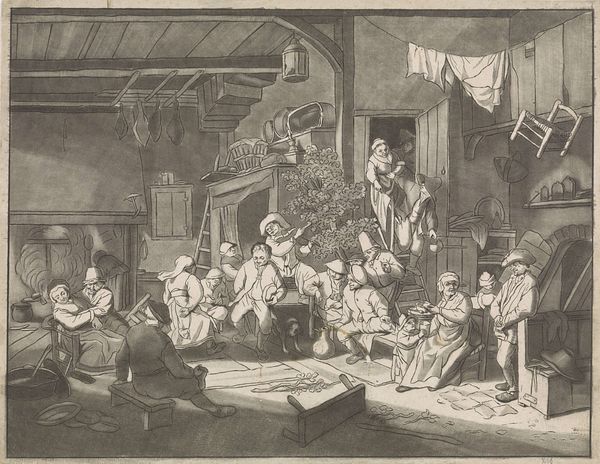
engraving
#
narrative-art
#
baroque
#
old engraving style
#
caricature
#
figuration
#
line
#
genre-painting
#
history-painting
#
engraving
Dimensions: height 220 mm, width 327 mm
Copyright: Rijks Museum: Open Domain
Editor: Here we have "Maaltijd en gastvrijheid bij de Germanen," or "Meals and Hospitality with the Germans," an engraving made in 1684 by Joseph Mulder. The figures and setting appear quite rough. I'm curious, what aspects of the work strike you most? Curator: Immediately apparent is the artist's masterful manipulation of line to delineate form and texture. Observe how the density and direction of lines create a palpable sense of depth and volume, particularly in rendering the figures and architectural elements. The use of hatching and cross-hatching constructs shadow, contributing to a heightened sense of drama. Editor: Yes, the linework is certainly detailed, giving the impression of a sketch. Is there something else? Curator: Indeed. Notice also the structural organization of the composition. The artist employs a sophisticated arrangement of figures within a clearly defined spatial framework. Note how the grouping around the central fire establishes a focal point, with the surrounding figures arranged to lead the viewer's eye through the scene. Ask yourself: how does this purposeful organization of elements enhance the narrative coherence of the work? Editor: I see what you mean. It’s almost like a stage with different characters acting. So you find the real focus in the artistic structure rather than its meaning. Curator: Precisely. This engraving serves as a prime exemplar of how formal elements converge to create an aesthetic experience. A close reading of line, texture, and composition is key. Editor: I never thought about an image from a point of structure. Thanks for opening my eyes to a fresh perspective. Curator: You're very welcome. Always consider the structural integrity first. It holds many clues.
Comments
No comments
Be the first to comment and join the conversation on the ultimate creative platform.
